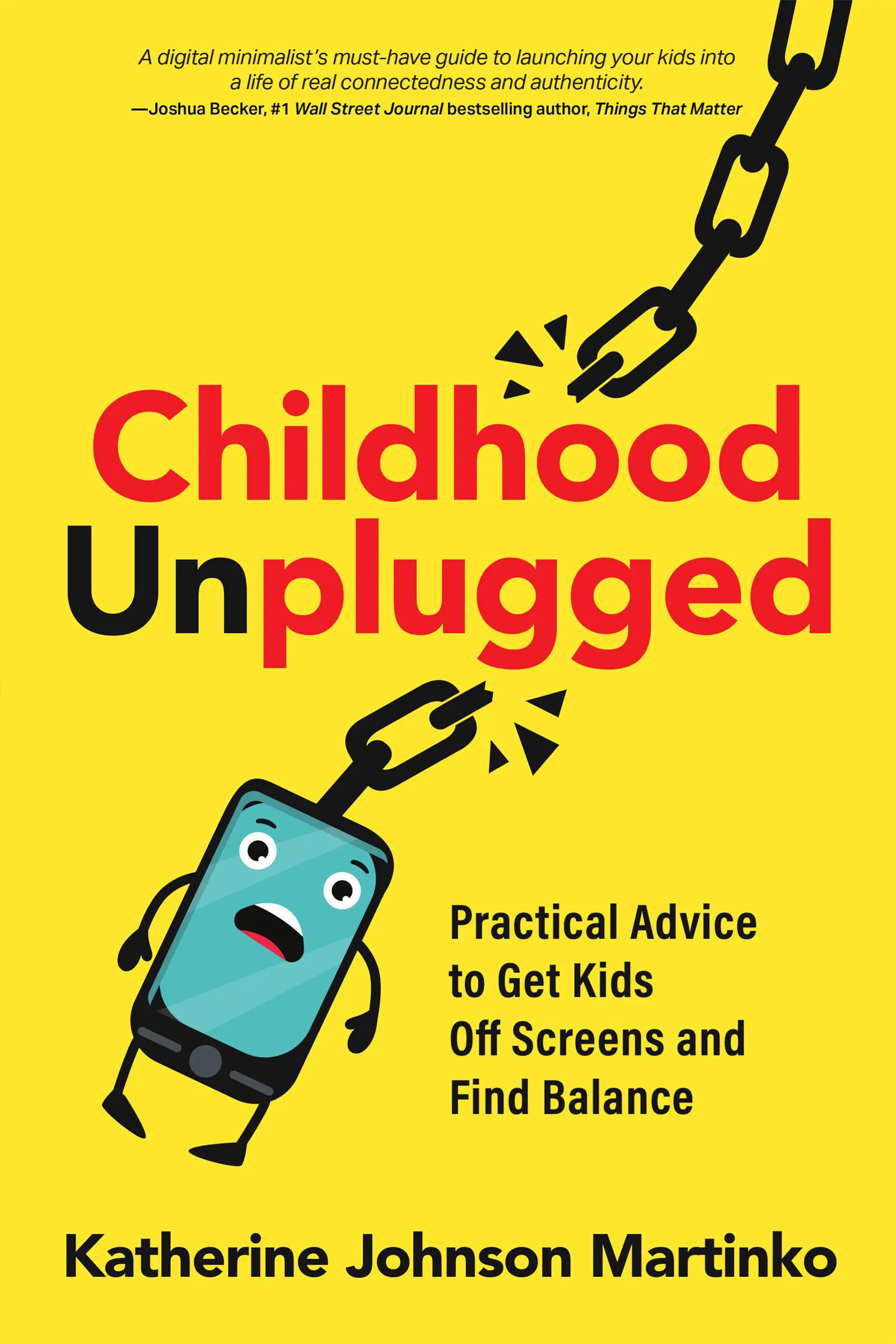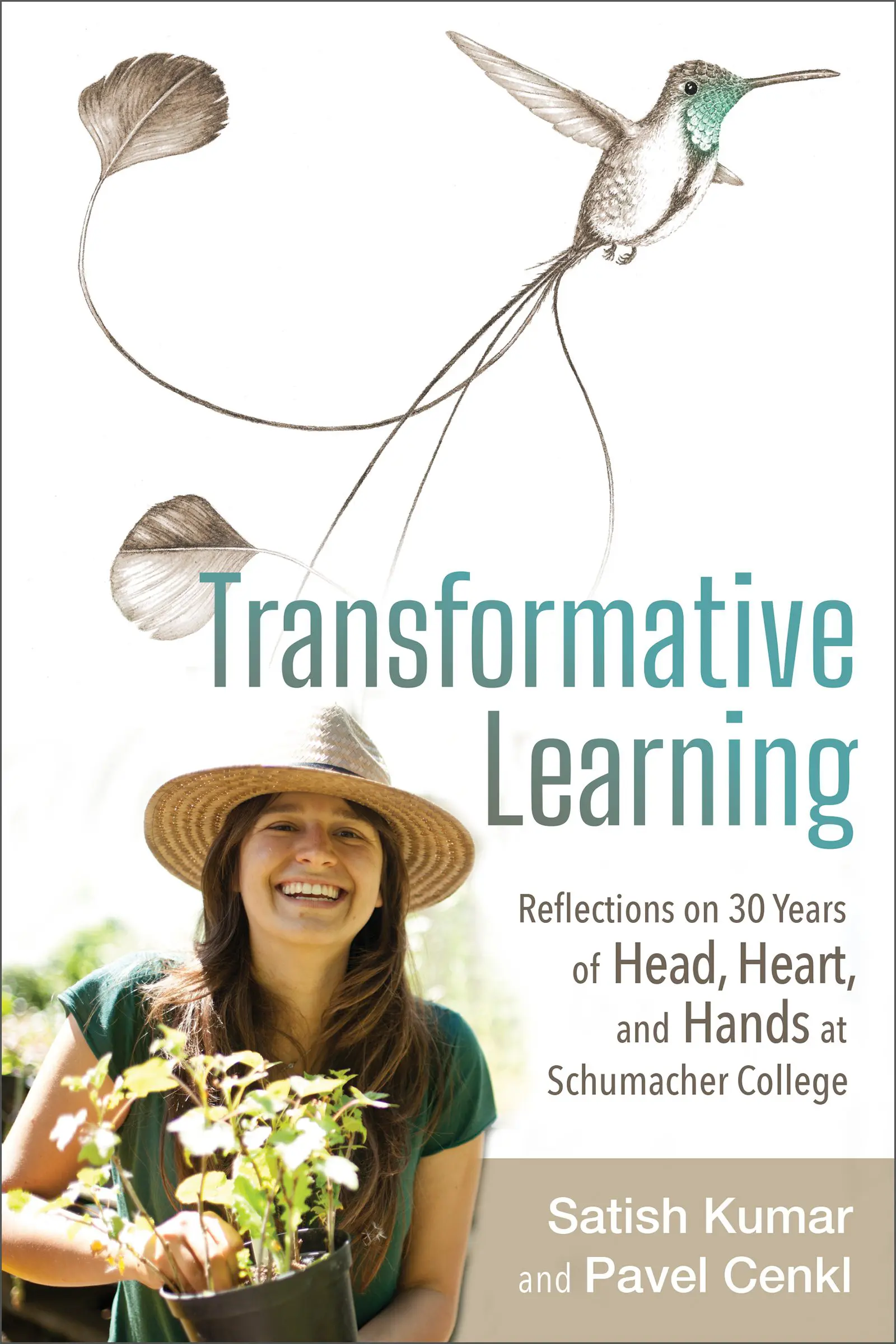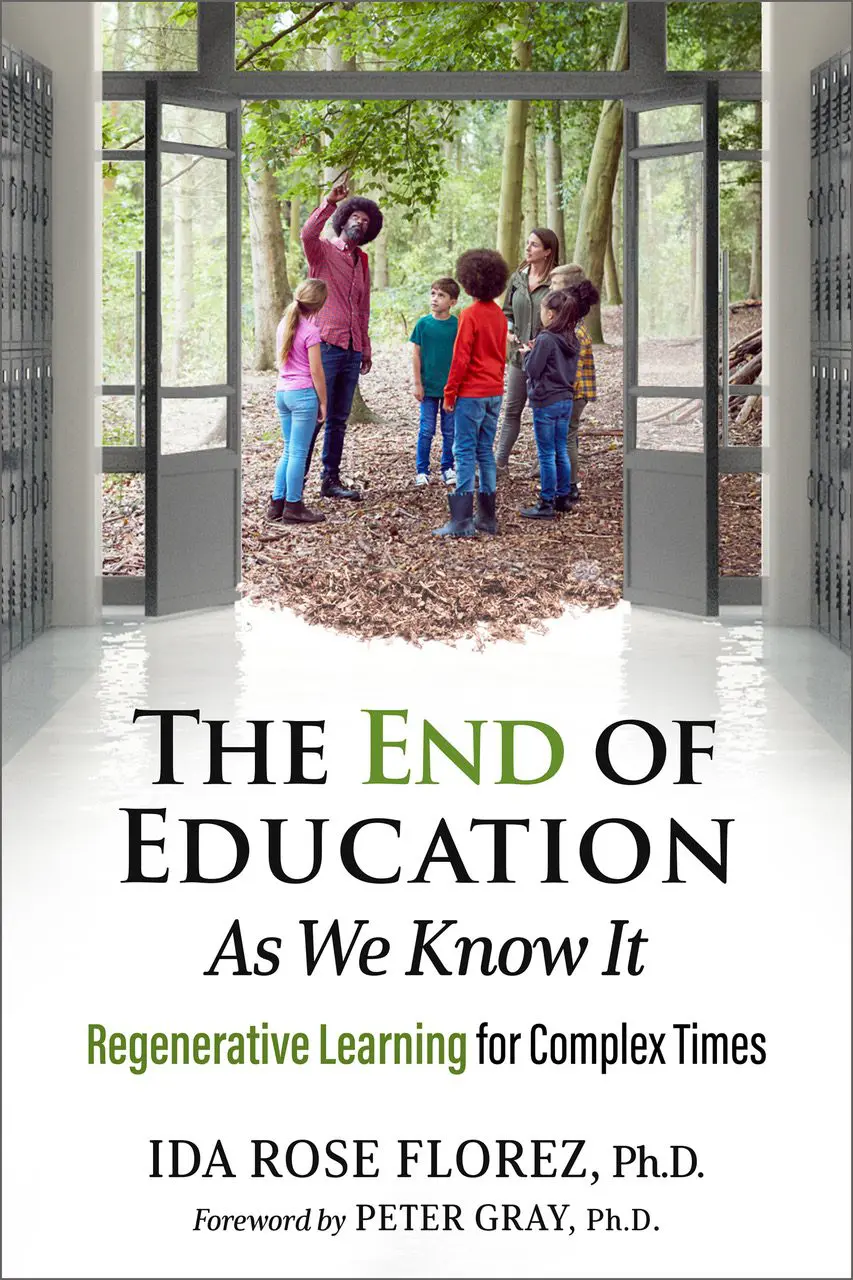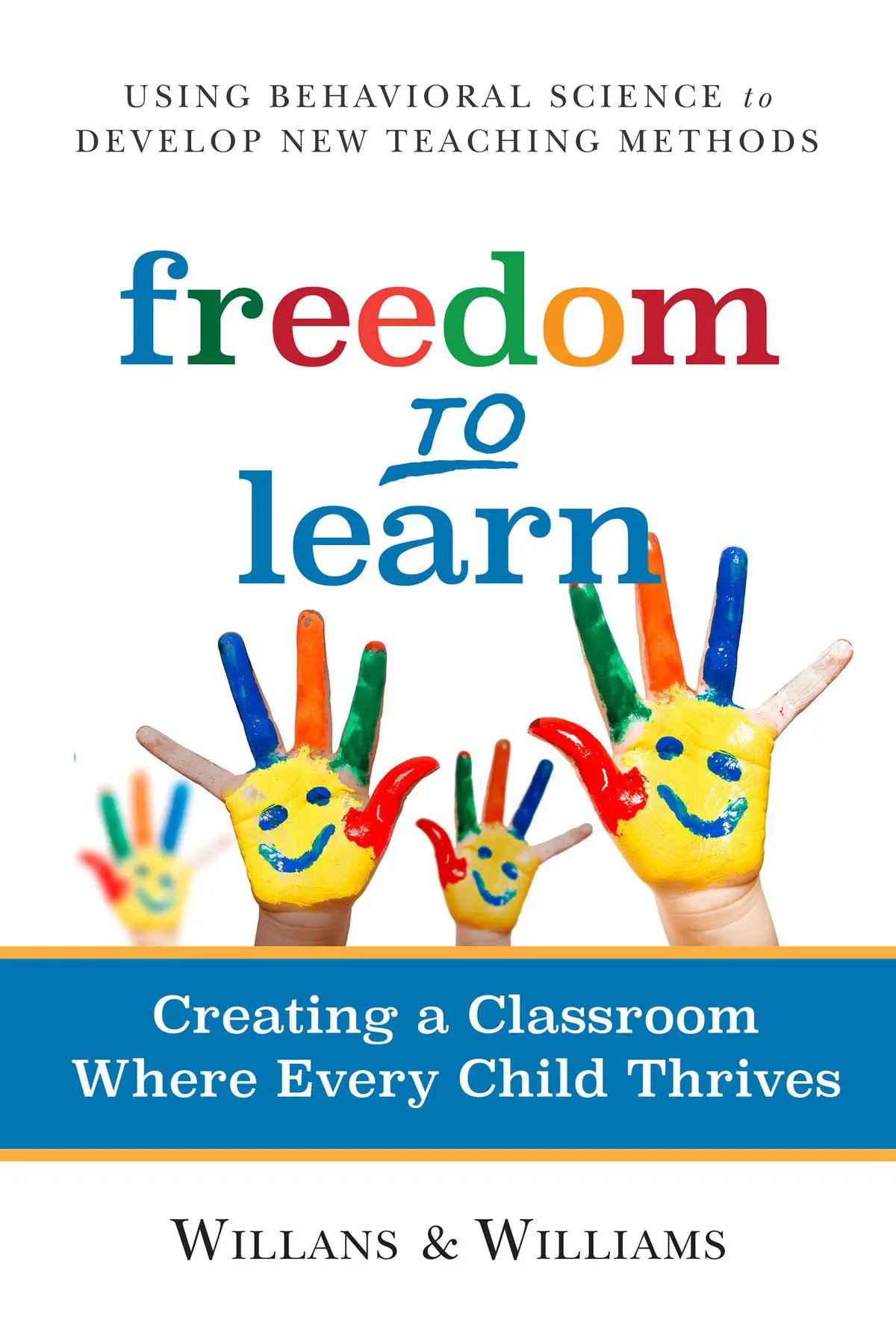
In today’s fast-paced world, play often takes a back seat to busy schedules and digital distractions. Yet play is essential for human development, fostering creativity, problem-solving skills, and social interaction. Excessive screen time can hinder social skills and creativity, displacing valuable play and exploration. This selection from Katharine Johnson Martinko’s Childhood Unplugged explores why reclaiming the freedom to play is crucial and emphasizes family time and relaxation to nurture healthier habits and stronger connections.
Excerpt from Chapter 4: Freedom to Play (Elementary-Aged Kids)
At this age, your child might start asking why you don’t have the same screen-based entertainment at home that their friends do. This is a natural question that should not be interpreted as a challenge to your philosophy. Explain that you have chosen an alternative approach. “We do things differently in our family,” I tell my kids. When they were young, that was sufficient explanation, and it was easier because we were simply continuing what we’d already established. Remember, begin as you mean to go on.
Children between 6 and 13 are developing complex personalities and doing things independently. They are open to new experiences, quick to pick up skills, eager to make friends. Some like to take risks and push the limits of what their growing bodies can do, while others develop more introspective and artistic skills. It’s a time of tremendous mental and physical expansion, which also makes it a terrible time to get snagged on screens.

Excessive time spent on social media, YouTube, and video games represents time not spent doing all the other seemingly pointless yet marvelously productive activities that kids at this age should be doing. Too much screen time introduces self-consciousness and a nagging sense of dissatisfaction in a child’s life at a time when they should be unconcerned with what others think or do and focused on pursuing friendships, imaginary play, and physical development, as well as coping with boredom.
Children at this age are busy. They like to be occupied with a range of activities, some initiated by the parent if the child is younger, others done with greater independence as the child grows. This requires time and effort from the parent. It is difficult, without a doubt, to squeeze in a bike ride or visit to the park before bedtime, but it’s a healthier and more fulfilling choice than letting a child retreat to a bedroom to play online for an hour or two while you send emails, fold laundry, and maybe scroll through social media yourself. The parent must also be willing to accept, at least partially, the free-range philosophy; if screen-based entertainment is being taken away, it has to be replaced by something, and that must be the freedom to play.

Keeping Busy
A busy child will have less time to want to spend on digital media. That’s why some families like to add extracurricular activities to their kids’ schedules in order to “fend off ” the screens. One dad I spoke to said he signs his kids up for every possible summer activity for that very reason; it means fewer chances for them to get sucked into their tablets, even if it means extra work for him. If you think your family might struggle with the perceived void that follows in the wake of banishing screens, consider signing kids up for sports, music, a church youth group, Scouts or Girl Guides, or whatever groups are available in your community to keep them active and engaged socially offline.
At the same time, though, don’t overfill the schedule. Far too many families are running around at a frantic pace, ferrying kids to multiple activities and lacking the time to have dinner together or get to bed at a reasonable hour. That’s not good, either. Your goal should be to strike a balance between activities that both you and your child enjoy and that allow you to have enough spare time to feel balanced.
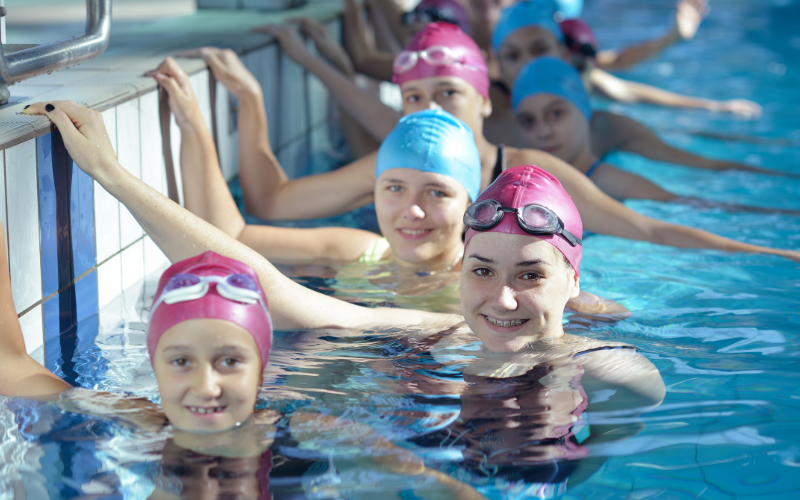
In my family, that means music lessons for each child. In winter they do cross-country skiing on Saturday mornings. Jason and I ski while they’re in lessons. It’s a great way to kick off the weekend, spending two hours in the gorgeous snowy forest, and I always come away feeling exhilarated. We often go to free public skates at the local arena and sometimes on frozen Lake Huron if conditions allow. The rest of the year, the kids take periodic swimming lessons and do drop-in tennis at a local club. One plays football at school, another does track and field. As a family, we do regular weekend hikes, visit the beach almost daily in summer, and try to use our bicycles as primary transportation.
Every household will take a different approach to juggling extracurriculars; I do not assume my priorities would apply to everyone. A good friend of mine has his children in hockey and doesn’t mind the long hours spent at the arena and traveling for games. He said he likes getting out of the house and talking to other parents and that it keeps his kids from watching TV (they don’t have tablets).
One screen-free family I interviewed said they avoid all organized activities. “We don’t have [our three kids] in any sports, never have,” the mother told me. “I’m teaching them to swim on my own whenever we go to the pool. We will bring them skating when the arenas are open. We would rather have our weekends open so we can be outside.” You need to find what works for you, your child, your financial situation, and the daily rhythm of your family’s life.

When you know what your child has to do each week, you can establish a routine. I am as much a fan of routines for older children as I am for babies. It creates structure and predictability, which is freeing in its own way. A mandated daily hour of outdoor play is a good starting point. Try slotting it in right after school, before the dinner rush and homework begins.
Toronto mom Audrey Wichert says that her four kids always played outside after school, no matter how much homework they had.
Half my kids have ADHD [attention deficit hyperactivity disorder]. You have to set up your family systems differently for them. Basically, you come home, you go outside and play as hard as you can, and if you have homework to do, you do it afterwards.
This is crucial to “burn off the sedentary residue.”
Angela Hanscom, founder of TimberNook, has the same opinion. Children with ADHD or ADD [attention deficit disorder] need active outdoor play almost more than other kids because of the sensory stimulation they crave. She believes that stimulation is best found through outdoor play and that it helps them to pay attention and focus better afterward. She’s a proponent of mixed group play, too, as it helps kids who may normally struggle in a social setting to blend in. “There might be a child labeled with ADHD, and they don’t look like they have it out there,” she says, adding that peer modeling is more powerful than anything an adult tries to explain or demonstrate.
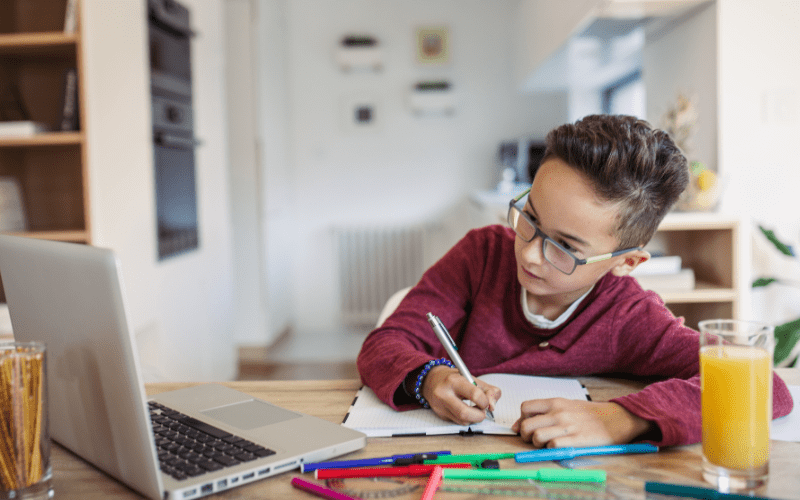
Factor in school, homework, chores, extracurricular activities, outdoor play, and a good night’s sleep, and there should not be much extra time to spend on screens. With schools being so screen-centric now, the analog time at home should be protected even more. Wichert agrees, saying that when her kids were in school, their home time felt more precious. “It was certainly not something I wanted to give any moment of to screens.”


